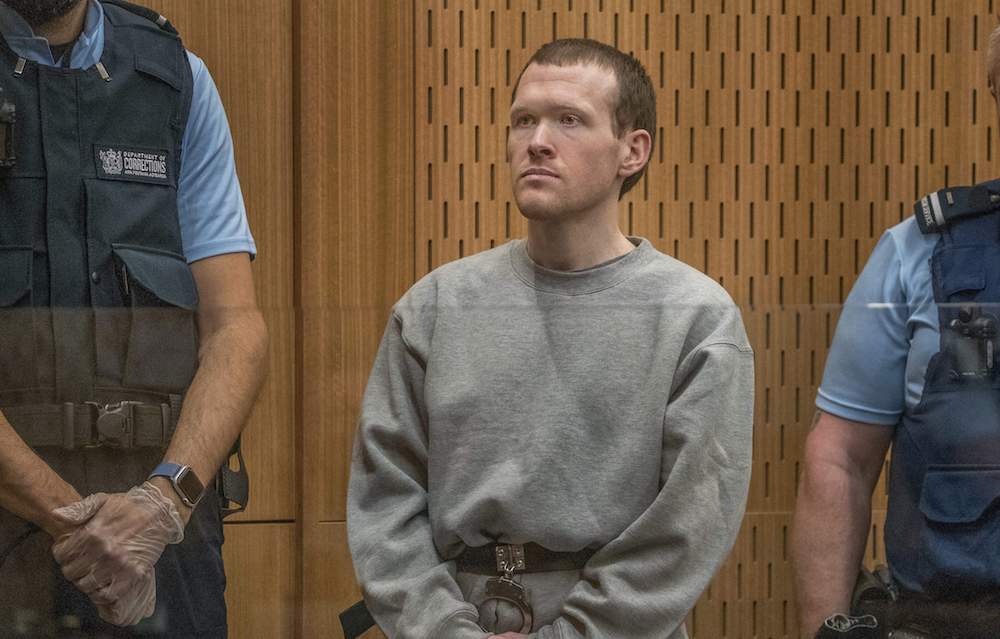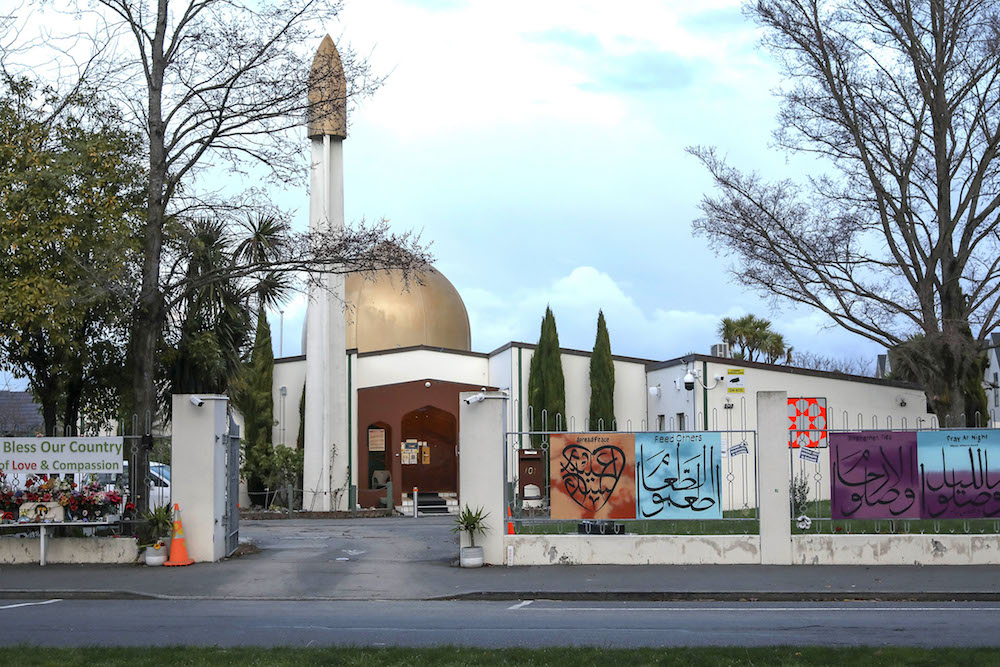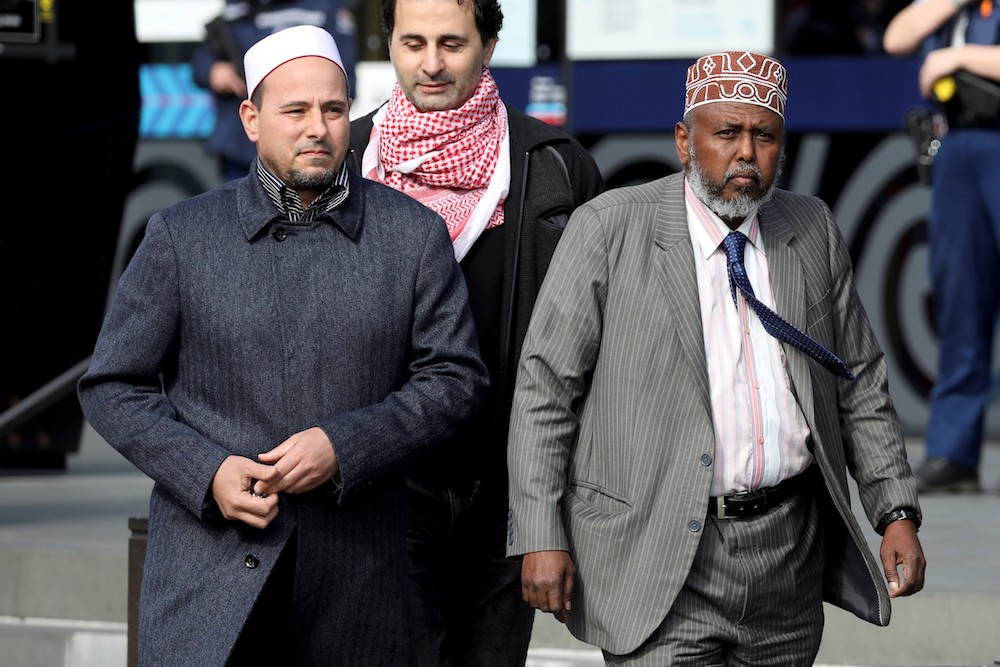CHRISTCHURCH: New Zealanders are hoping that the life sentence given to Brenton Tarrant — the mass killer who murdered 51 people during an anti-Muslim shooting spree last year — will bring an end to one of the darkest periods in the country’s recent history.
Tarrant, 29, was sentenced on Thursday to life imprisonment without parole.
The judge, Justice Cameron Mander, told the gunman he had been motivated by a “base hatred of people perceived to be different from yourself.”
He called Tarrant’s actions “inhuman,” saying the killer “showed no mercy.”

Australian white supremacist Brenton Tarrant attends his first day in court in Christchurch on August 24, 2020. (AFP)
The whole-of-life sanction, for killings that took place during Friday prayers last March at a mosque and nearby religious center, was a first for the South Pacific nation, which carried out its last execution in 1961 before abolishing the death penalty in the late 1980s.
Christchurch is an unlikely setting for a hate crime of such scale. In December 1850, four ships carrying British laborers and farmers “of reputable morals” arrived at New Zealand’s second-largest city, to establish what they cheerfully supposed to be a “better” class of Anglican-style life — decorous, devout and, as an old cliche used to have it, more English than England.
But there were always others in the cultural mix, too, not least the indigenous Maori tribesmen who staked out a claim to the land centuries earlier. More recently, and from the early 2000s in particular, Christchurch has been a destination of choice for eligible refugees, including many from the Middle East.
However, the Garden City also played host to Tarrant, a diminutive white supremacist who journeyed more than 2,000 miles from his native Australia to violently purge New Zealand of what he deemed to be “outsiders” — Muslim migrants, specifically.
Tarrant pleaded guilty to 51 counts of murder, 40 of attempted murder and one of engaging in an act of terrorism that he livestreamed on Facebook. These terrorist acts, unprecedented in the country’s criminal history, were carried out against Friday worshippers over a period of around 40 minutes at Christchurch’s Al Noor Mosque and Linwood Islamic Center.
The killer’s lack of remorse at the sentencing — he declined an opportunity to speak on Wednesday and had previously sacked his appointed defense counsel — was as palpable as his lack of mercy on the day of the slaughter, the judge said.
THENUMBERS
NZ Mosque Shooting
* 51 Counts of murder to which Tarrant pleaded guilty.
* 1% Proportion of Muslims in New Zealand’s population.
* 1961 Year New Zealand abolished death penalty for murder.
* 1997 Mass shooting last occurred in NZ before Christchurch.
“You ignored the pleas of the wounded to be spared,” Mander said, shortly before telling Tarrant to stand for sentencing. “You advanced on them, stood over them and shot them.”
Tarrant’s largely expressionless face showed hints of boredom and, as always, a thinly veiled menace. The full extent of that menace was the major focus of the four-day sentencing hearing during which almost 90 victim impact statements were delivered to the court.
What emerged was that while Tarrant had succeeded in carrying out his deadly attack on the city’s two major Muslim community centers, his efforts inadvertently united not only those targeted but also the wider city of Christchurch and the indeed the entire nation of 5 million people.

A general view of the Al-Noor Mosque ahead of the last day of the sentencing hearing for Brenton Tarrant, the gunman who massacred 51 people during last year's twin mosque attacks, in Christchurch on August 27, 2020. (AFP)
Tarrant’s sentencing brought a wave of shared relief at an infamous chapter starting to come to an end.
“It has been 531 days that (our) community has had to hold a kind of silence,” Tony Green, a local Muslim who worked closely with Al Noor Mosque in the wake of the carnage, told Arab News.
The chance to finally speak had “lifted a great weight,” he said. “Reading the victim impact statements aloud has been empowering.”





























